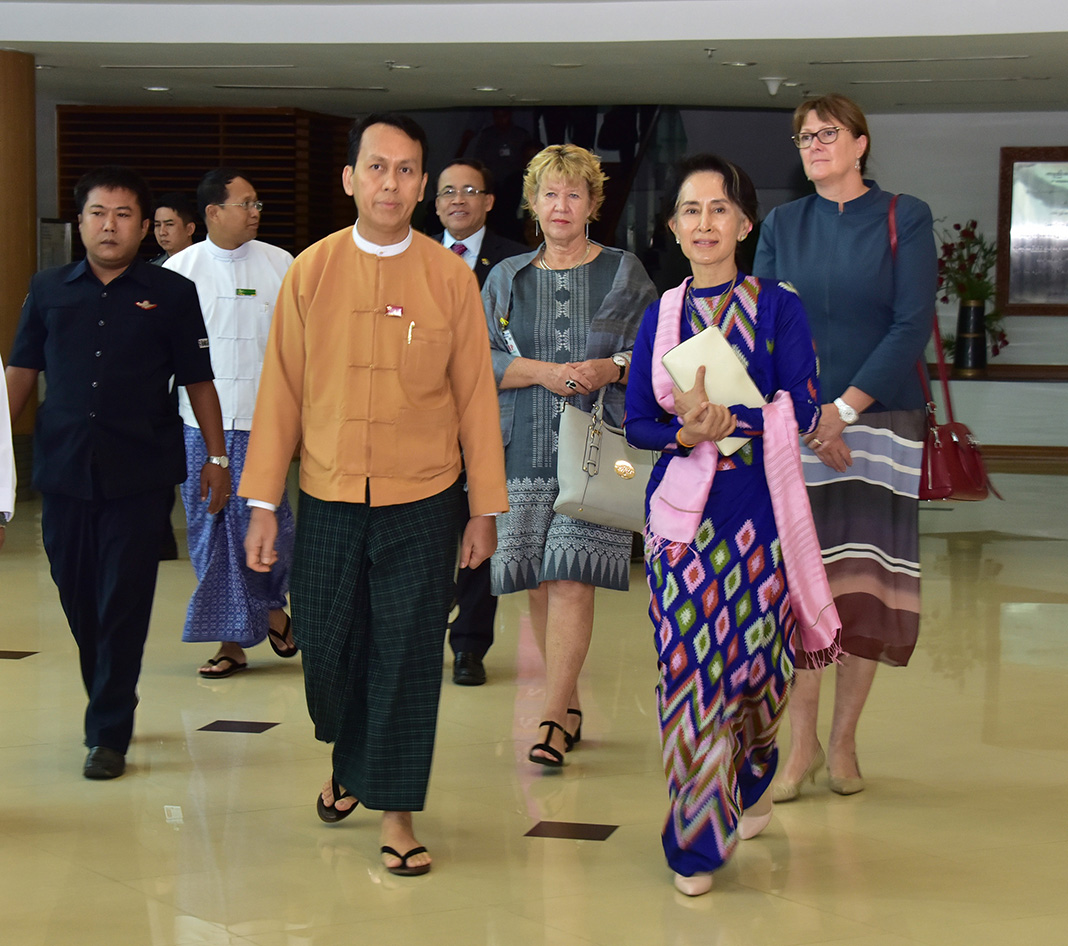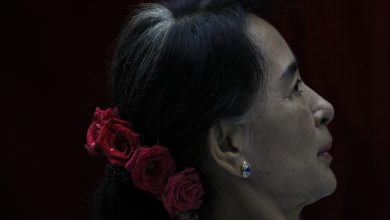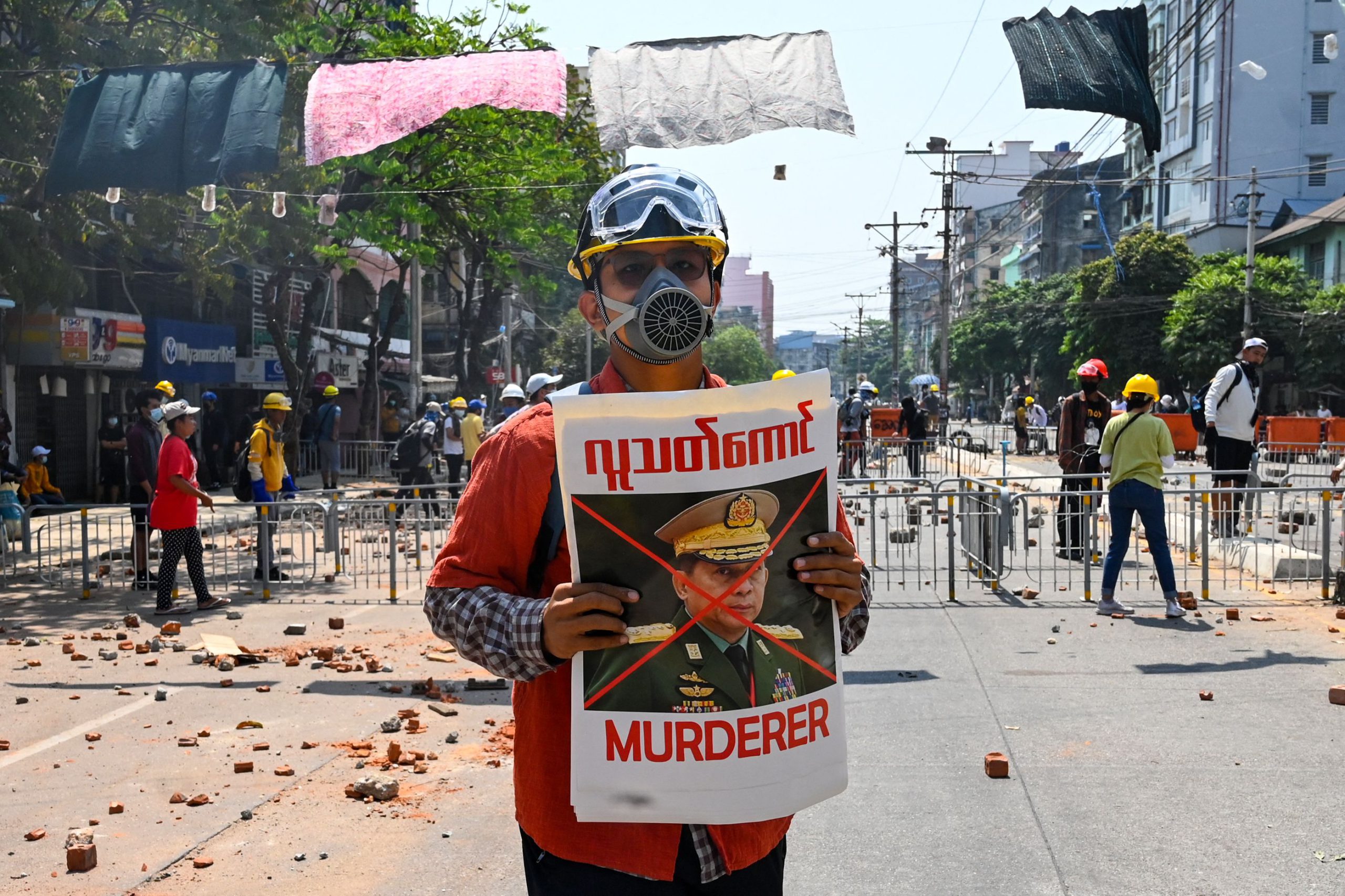
Phyo Min Thein, the former chief minister of Yangon Region and once trusted confidante of National League for Democracy (NLD) leader Aung San Suu Kyi, is no stranger to the games played by Myanmar’s military leaders.
As a former political prisoner who spent 14 years behind bars, he knows that the generals regard their captives as nothing more than pawns. They can be caught or released at will, depending on what purpose they are supposed to serve.
That is why the testimony he delivered during a court hearing in Naypyitaw last Friday has to be seen for what it is: evidence of junta shenanigans, not Suu Kyi’s malfeasance.
The charges that Phyo Min Thein’s testimony was supposed to support have been floating around since March, when the regime launched its smear campaign against the leader of the civilian government it ousted the month before. Not content with pushing unfounded claims that the NLD had stolen last year’s election, which it won in a landslide, the coup makers also accused Suu Kyi of personally demanding extravagant bribes during her party’s time in office, taking $600,000 in cash and more than 11kg of gold from Phyo Min Thein alone.
These allegations of rampant corruption were tacked onto a series of less serious charges, including violations of Covid-19 restrictions and illegal possession of walkie-talkies, as well as the all-purpose offense of incitement. These claims have done little, however, to dent Suu Kyi’s popularity among ordinary citizens, who still regard her as the country’s rightful leader.

Last Friday’s stunt—putting Suu Kyi in the same courtroom as her accuser as he took the stand—was not likely to change anybody’s mind about her. But it did serve another purpose, which was to sow division within her party and weakens its long-term prospects as a viable alternative to military rule.
Unlike most other senior members of the NLD, Phyo Min Thein has always been something of an outsider. A product of a fairly well-to-do family, he first became involved in politics during Myanmar’s nationwide pro-democracy uprising in 1988, when he was just 19 years old.
Imprisoned in 1991 for taking part in protests, he was not released until 2005. He then went on to found his own party, but withdrew from the 2010 election when it became apparent that it would be neither free nor fair. It was not until two years later, during the by-elections of 2012, that he ran as an NLD candidate and was elected to office for the first time.
Known for his calm-and-collected demeanour, he soon became close to Suu Kyi and was even touted as her possible successor. Elected again in 2015, he was appointed chief minister of Yangon Region. Although he didn’t run in 2020, he continued to campaign on behalf of the NLD, and when the party was forced from power in February, he was among the first to be arrested.
As a party that has faced decades of persecution, the NLD has long relied on its staunchest loyalists for its continued survival. Phyo Min Thein’s rapid rise through the party’s ranks, at a time when it was coming closer to its goal of assuming power, represented a departure from that strategy. As such, his current role in the drama now being orchestrated by the junta serves to highlight the party’s vulnerability as it seeks to ensure a future for itself beyond its founding generation.
It is safe to assume that Phyo Min Thein was singled out and coerced into taking part in the farcical trial against Suu Kyi because he was seen as the weakest link in the NLD chain. (Notably, none of the other chief ministers detained in the wake of the February 1 coup—Dr. Zaw Myint Maung, Dr. Aung Moe Nyo, or Nyi Pu, all of whom were first elected as NLD candidates in 1990—have been put in this position.) What isn’t clear is what leverage the junta used against him, apart from the threat of imprisonment, but the fact that his wife, Khin Mi Mi Kywe, was also detained by the regime might offer a clue.
In any case, it is evident from remarks made by Suu Kyi’s lawyers that he was not a willing participant in this charade. In poor health after two recent bouts of Covid-19, and also suffering from a heart condition, he spoke quietly and stiffly as he took the stand with his back turned to Suu Kyi, who later dismissed his claims as “absurd”.
While the chief target here is clearly Suu Kyi and her party, it is also obvious that the regime is keen to bring Phyo Min Thein’s political career to an ignominious end, once and for all. No admirer of the country’s military rulers or theirs minions (including the rabidly nationalistic monks of Ma Ba Tha), he has earned the generals’ ire many times in the past.
While the spectacle of an up-and-coming politician destroying his own reputation by doing the bidding of a hated regime is far from edifying, it is a useful reminder that outright violence is not the only weapon the military has at its disposal. Finding and exploiting weaknesses in its enemies is also part of its arsenal.



